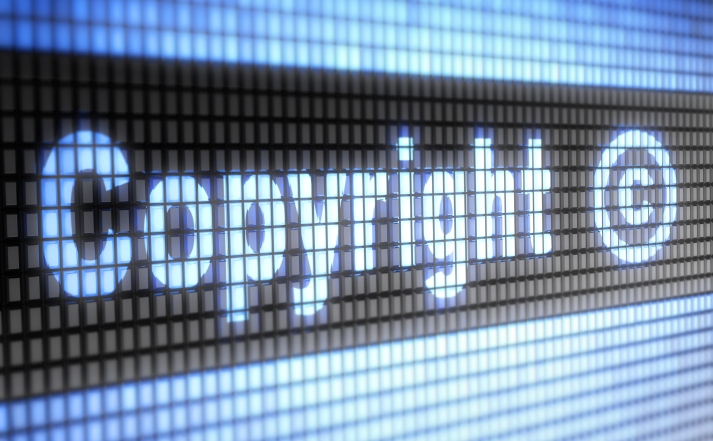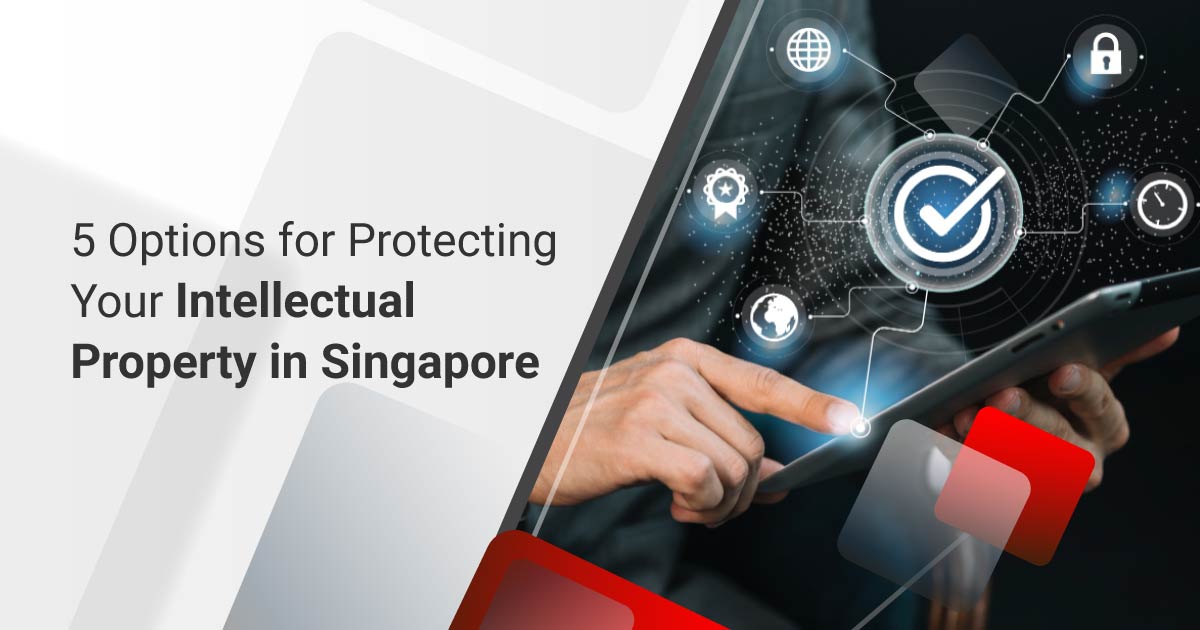Inside This Article:
The registration and acquisition of intellectual property (IP) is increasingly becoming an important part of doing business in Singapore and participating in the global knowledge-based economy.
Singapore boasts one of the most resilient legal frameworks globally when it comes to intellectual property (IP). The nation’s comprehensive IP framework effectively protects various forms of intellectual property, including patents, trademarks, copyrights, and trade secrets.
Protect Your Intellectual Property
Various types of intellectual property are recognised and can be registered in Singapore. These include patents, registered designs, trademarks, copyright, and trade secrets. Read on to find the differences between them, and which are relevant to your business.
Why Should You Protect Your Intellectual Property?
The basic goal of registering IP is to ensure that you, as its owner, hold the exclusive rights to use, license, or sell your IP. It also legally protects you, prevents others from using your idea or product without your permission or any form of financial compensation, and helps you profit from it.
So, suppose you’re thinking of doing business here. In that case, it is therefore crucial that you acquaint yourself with the other good reasons to register IP in Singapore as well as understand its IP legislation. Here are the available options to safeguard your IP:
Patents
Patents are used to protect intellectual properties that are technical in nature. For instance, this can include new pharmaceuticals, gadgets, appliances, and even newly developed materials.
However, it is important to remember that patents are more concerned with ‘how’ a result is achieved than the result being achieved. You cannot patent a ‘device to straighten hair’ for instance, but you could patent the use of ‘heated tongs’ to that end.
In Singapore, patentees are granted a limited monopoly that lasts 20 years if their application is successful. However, this requires the applicant to submit specifications/blueprints for their patent, which will be published and accessible by the general public.
Registered Designs
As opposed to design patents, Singapore uses ‘registered designs’ to protect the outward appearance of a product, without regard for function or mechanism.
If a company were to release a new phone, for example, they would require a patent to protect any new technologies, such as new types of sensors, and a registered design to protect the appearance of that phone to avoid copies with poorer specifications.
Registered designs protect the first ‘industrial application’ of the design, meaning that more than 50 copies are intended to be produced for sale.
Copyright

Copyrights protect artistic works that can be literary, musical, visual, or performative. In Singapore, this form of protection can also extend to ‘useful’ products which cannot be protected through patent or registered design.
All forms of copyright protection will be applied for a fixed period. This varies depending on the type of copyright work. For literary, dramatic, musical, and artistic works, it may span 70 years from the year-end of the author’s death and for broadcast and cable programs, it is 50 years from the year-end of the making of the program.
Trade Secrets
Confidential information and technical know-how are considered ‘trade secrets’ and are protected in Singapore, primarily through reputation and goodwill as well as common law.
However, there are neither registration procedures nor statutory legislation concerning this kind of intellectual property. The use of NDAs (non-disclosure agreements) is recommended, along with general good practices – for instance, limiting the number of people who come into contact with sensitive information.
Trademarks
Trademarks protect brand names, logos, or phrases used in marketing and storytelling. For instance, a trademark may apply to a brand name like ‘Microsoft’ to prevent other companies from trading under that name, but it could also apply to a character name such as ‘Spider-Man’ or an image such as the Nike logo.
In Singapore, the rights to a trademark are perpetual as long as the company or individual continues to use that mark in association with their business.
Unregistered trademarks can also be acquired in Singapore if a company has traded under that name and the association has become well-established. There are limitations of course on what can be used as a trademark, and the Consumer Protection Act protects against the misuse of trademarks and trade descriptions.
International Trademark Registration via the Madrid Protocol
The Madrid Protocol is an international treaty that aims to simplify and streamline the process of trademark registration for businesses. It was established in 1989 and is administered by the World Intellectual Property Organization (WIPO).
Under this treaty, a business can file a single application for trademark registration in multiple countries that are members of the Madrid Protocol. This avoids the need to file separate applications in each individual country, saving time and money for businesses.
Once a trademark is registered through the Madrid Protocol, it is protected in all member countries for 10 years. This can be renewed indefinitely as long as the trademark remains in use.
Protect Your Intellectual Property With Rikvin
As you can see, IP is a valuable asset to your company and can set you apart from others in your industry. This then gives you the confidence to collaborate with other organisations and opens up possibilities for new opportunities in Singapore and abroad.
If you’re interested in registering a trademark in Singapore, we can help. Contact us for an obligation-free consultation.
FAQs About Intellectual Property
- They include patents, registered designs, copyright, trademarks, and trade secrets.
- The importance of protecting intellectual property cannot be overstated, particularly in a globalised market. Doing so ensures that businesses maintain the exclusivity of their brands and products, thereby safeguarding their market share and fostering innovation.
- Some examples are patents and trademarks.
Protect your identity and register a trademark in Singapore
Rikvin can guide you throughout the entire international trademark registration process. Contact us now!

Eric comes from banking background. He provides consultancy to local and foreign entities on the ideal market-entry strategies for setting up or expanding operations in Southeast Asia.
Eric also provides advisory to fund managers and family offices on structuring as well as applicable tax incentives. He has also set up many VCC structures for licensed fund managers.


